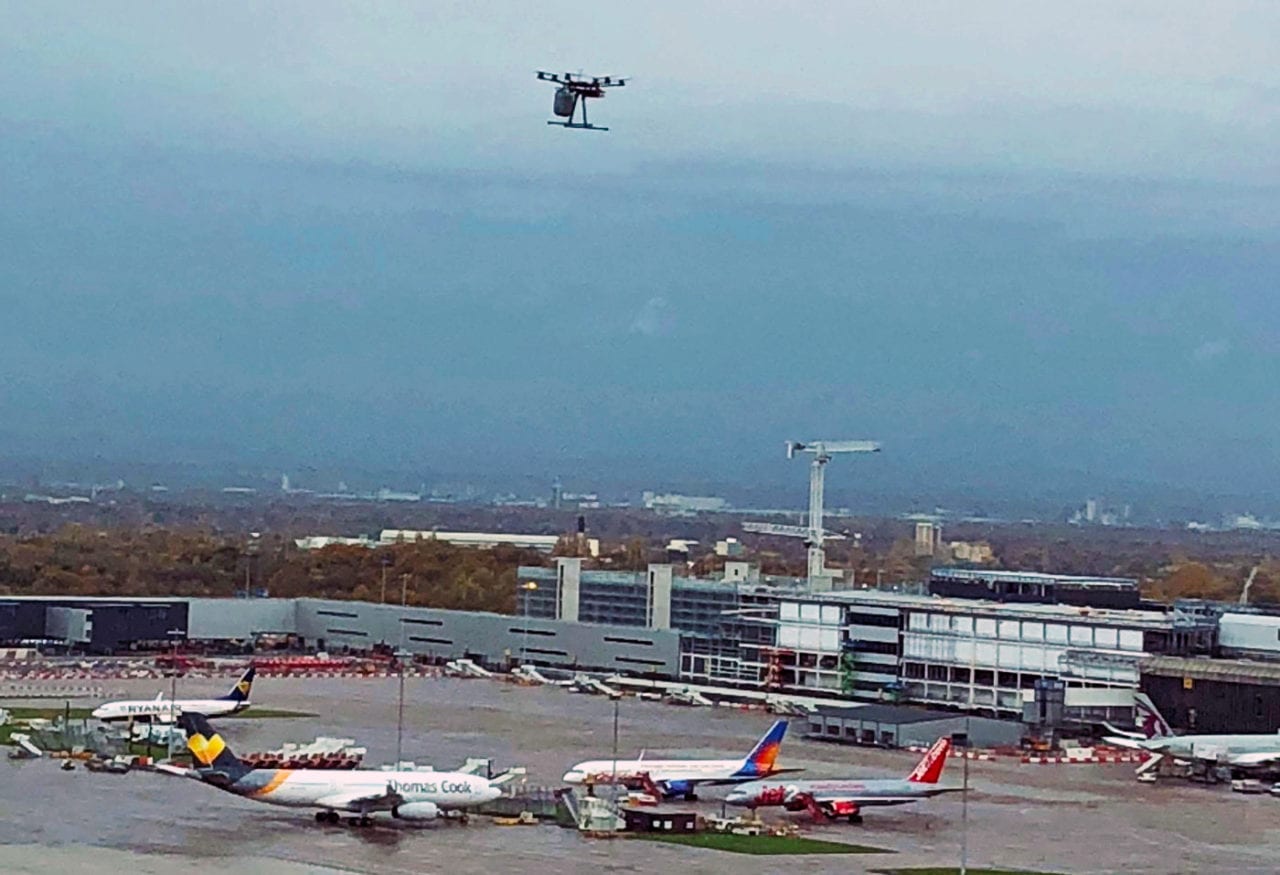
A drone flying over Manchester Airport during Operation Zenith. (Altitude Angel/NATS)
A United Kingdom law went into effect last July 30 that makes it a crime punishable by up to five years in jail to fly a drone within one kilometer of an airport or airfield boundary or to fly a drone above 400 feet, but that law was small solace to the thousands of passengers stranded or delayed by several drones that disrupted operations at Gatwick Airport — London’s second largest — less than a week before Christmas.
Gatwick authorities said that flights remain suspended Dec. 20 “due to ongoing drone activity around the airfield.”
“There is significant disruption, as a result of what appears to be a deliberate attempt to disrupt flights,” the airport said on Twitter.
Sussex Police appealed to the public for information regarding the identity of the drone operators. A similar incident in July last year caused a runway closure for several hours.
On Dec. 19 and 20, Twitter commenters wondered why British authorities did not shoot down the drone, while others pointed to non-destructive technologies, such as the DroneGun Tactical by the Virginia-based company DroneShield, that can disable drones that operate in a dangerous manner.
The legality of destroying or disabling drones in commercial airspace is an evolving debate in many nations. The U.K. Ministry of Defense on Dec. 20 deployed equipment to help.
“A user can be barred from any counter-drone products (e.g. FAA prohibits interference with drones in the U.S., on the basis they are treated same way as ordinary aircraft), or around regulations regarding a specific countermeasure (e.g. FCC and similar communication authorities around the world restrict interference with radio waves for most customers),” according to DroneShield’s counter-drone handbook. “Typically, non-government customers in most countries cannot jam. Government and military users have their own protocols that exist both for domestic use (e.g. only at certain military base locations in the U.S.) and forward deployment overseas. For yacht owners, container ships, offshore oil rigs etc., Law of High Seas may apply.”
David Metcalfe, the chief executive of Verdantix, a London-based consulting firm, said that the Gatwick incident would cost the equivalent of $63 million and “set back” UAS regulatory development.
“We hope the authorities find the operators of these drones and the full applicable legal action is taken to deter future incidents of this kind,” the Montreal-based International Air Transport Association said in a statement. “Additionally, we look forward to accelerating the cooperation between the industry, drone manufacturers and governments to reduce the risks of rogue drone operations. Such measures could include greater education and awareness for drone operators, a registry of drones above a certain level of capability, enhanced fines and prison sentences for offenders, and technological solutions to prevent drones entering restricted airspace.”